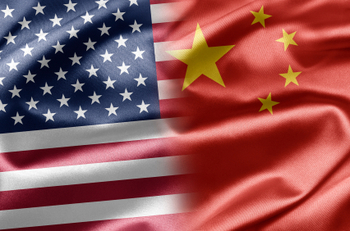
Congressional committee releases report on potential security risks.
A recent congressional report questioned two Chinese telecom companies’ links to the Chinese government and warned U.S. companies to consider “the long-term security risk associated with doing business with [them].” The report, issued by the Chair of the House Permanent Select Committee on Intelligence, detailed several reasons for concluding that the two companies — Huawei and ZTE — “pose a security threat to the United States.”
Growing risks of cyber-security threats, combined with the belief that “China has the motivation to tamper with the global telecommunications supply chain,” led the Committee to launch its investigation of the ties between these companies and the Chinese government in November 2011. The Committee sought information about not only the companies’ governmental ties but also each “company’s history, management, financing, R&D, and corporate structure.”
Committee members were reportedly dismayed that Huawei and ZTE did not fully answer their questions or provide documentation for answers. The report noted an insufficient explanation of the role of Communist Party members within both companies, incomplete accounting of possible connections with the Chinese military, and unanswered questions about potential non-compliance with intellectual property and export-control laws. For the report’s authors, “[t]he fact that Chinese companies believe that their internal documentation or information remains a ‘state secret,’ only heightens concerns about Chinese government control over these firms and their operations.”
As a result, the Committee determined that it “cannot rely on the statements of company officials that their equipment’s presence in U.S. critical infrastructure does not present a threat, and that the companies are not, or would not be, under pressure by the Chinese government to act in ways contrary to United States interests.”
The Chinese government strongly opposed the report’s conclusions. Shen Danyang, spokesperson for the Chinese commerce ministry, said the U.S. report is “merely based on subjective conjecture and untrue foundations” and consists of “groundless accusations against China.”
The two companies also denied the accusations. Huawei described the report as offering “baseless suggestions,” while ZTE said it “really understands American concern about cyber security, but . . . expected more constructive solutions from the US government to address the issue instead of just finger-pointing.”
It is not clear how the Committee report will affect both companies’ bottom lines. Cisco has already responded to the controversy by ending its partnership with ZTE amid claims that ZTE improperly sold Cisco’s equipment to Iran. Most of the two companies’ 2011 revenue came from abroad (67% for Huawei and 54% for ZTE), but the majority of that comes from countries other than the U.S. For example, U.S. sales make up only 4% of Huawei’s revenue.
However, the United States is not alone in questioning the companies’ links to the Chinese government. Sir Malcolm Rifkind, chair of British parliament’s Intelligence and Security Committee, revealed that the ISC will investigate Huawei’s relationship with British Telecom, which uses Huawei’s equipment for large infrastructure projects such as fiber-optic, broadband, or 4G networks. Canada invoked its “national security exception” in the bidding process for a new secure communications network, a move that some have suggested is linked to the U.S. report. Australia had previously kept Huawei from supplying the country’s new fiber network.
In addition to recommending that U.S. companies be wary of doing business with Huawei and ZTE, the Committee recommended that appropriate federal agencies investigate unfair trade practices by the two firms and that Congress consider legislation on telecommunications security risks.



